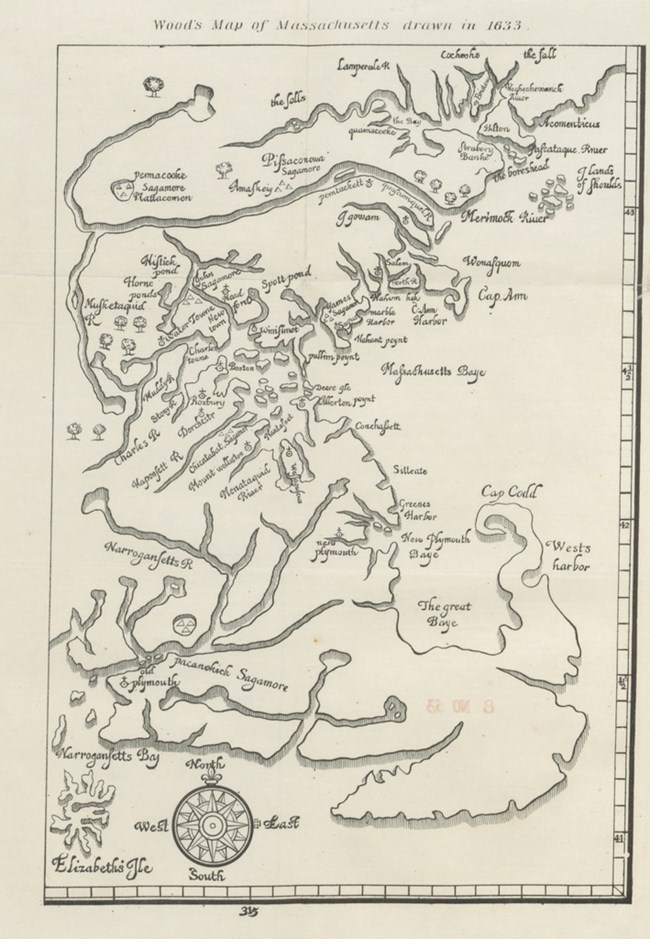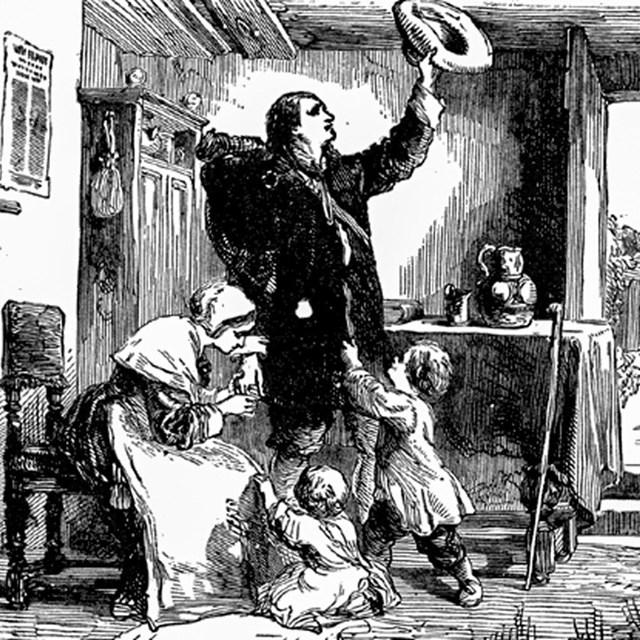
There he continued to preach his separatist ideas. However, under pressure from Boston, the elders in Salem stopped Roger from preaching. Williams chose to move to the separatist settlement at Plymouth Colony which was totally outside the borders of the Massachusetts Bay Colony. In Plymouth, Williams spoke out against the ministry that was paid for by tax money and fines. To make a living, he traded English goods with the Wampanoag and Narragansett. In these dealings, he became friends with Massasoit, Chief Sachem of the Wampanoag and Cononicus, Chief Sachem of the Narragansett. These relationships were crucial for Williams. He learned the Narragansett language, and he gained a great respect for the way they lived. He returned to Salem as a trader, who preached on the side. He entered into controversy again with the Massachusetts Bay authorities. He disputed English charters that took land from the Native Americans. He also continued arguing for the separation of church and state. He believed that the “First Table” laws (the first four of the Ten Commandments) are matters of individual conscience. These should not be enforced as laws by the government. Several times he was warned to be quiet or face the consequences. Finally, in October of 1635, Williams was charged with "new and dangerous opinions against the authority of the magistrates”. Massachusetts Bay sentenced the troublesome minister to deportation. In the middle of the fierce winter of 1636, Roger heard that he would be arrested. Fearing the worst that may happen if deported back to England, Roger left his family behind and fled out of Salem and Massachusetts Bay Colony to avoid arrest. Learn More
|
Last updated: January 6, 2023



